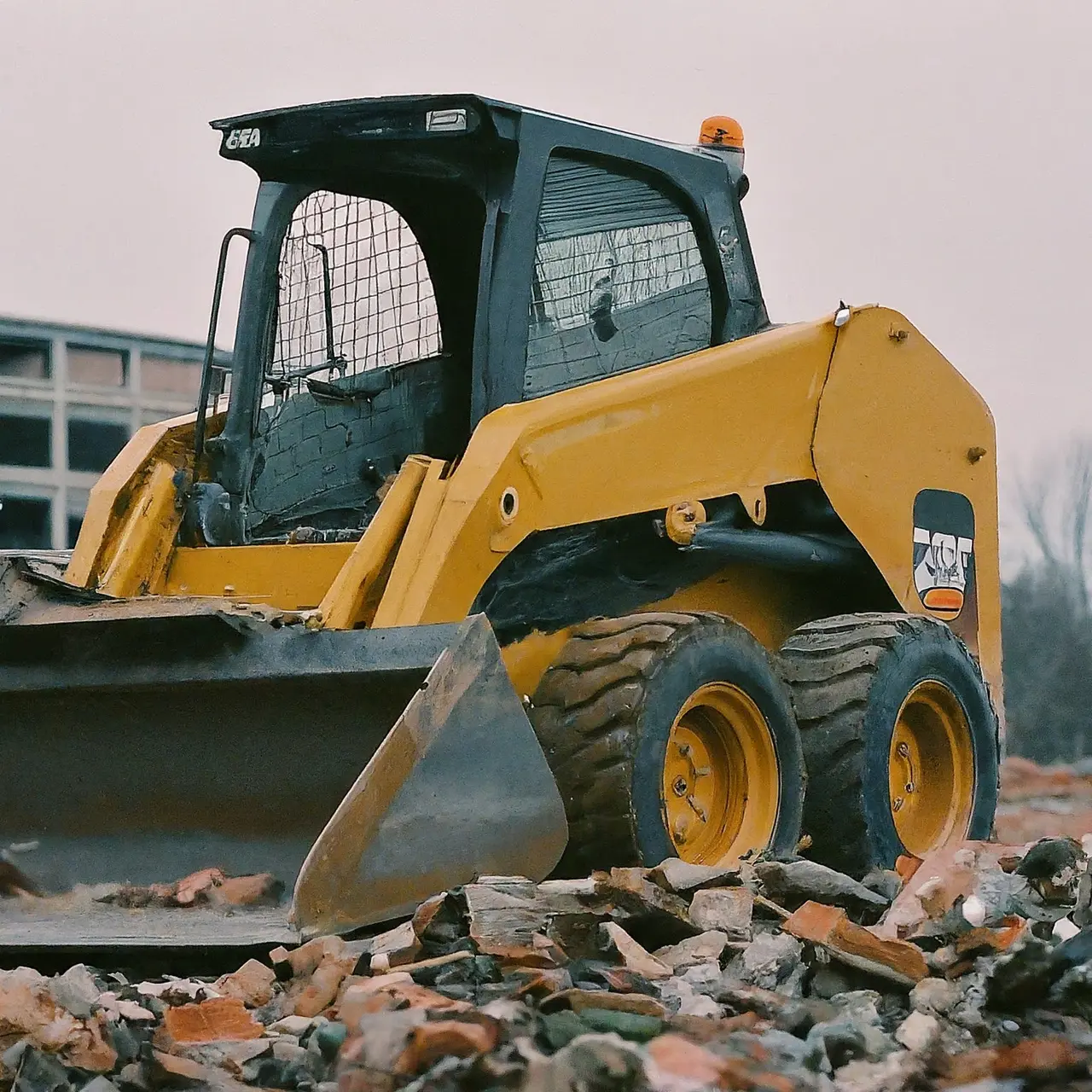In Taunton, the booming construction and the inevitable cycle of building demolition has cast a spotlight on the less-discussed, not-so-glamorous byproduct: demolition waste. This waste, if not managed effectively, harbors a significant threat to our environment. Discover how this growing issue affects our surroundings and learn about the innovative ways in which the residents of Taunton can play a pivotal role in minimizing its impact.
Understanding the Impact of Demolition Waste
When buildings reach the end of their lifespan, it’s not just the structures themselves that come down. A multitude of materials—concrete, wood, metal, and more—become part of a growing pile of demolition waste. These materials, if not properly managed, contribute to rising concerns over landfill space, releasing potent greenhouse gases, and inadvertently hindering sustainable urban development efforts. As we delve deeper into the environmental implications, it becomes evident that understanding this impact is the first step toward mitigating it.
Besides occupying vast amounts of precious landfill space, demolition waste also has a more insidious impact on the environment: pollution. The breakdown of materials can lead to the leaching of harmful chemicals into soil and waterways, posing serious risks to wildlife and even human health. Furthermore, the process of demolition itself requires energy, contributing to the carbon footprint of urban renewal projects. With these factors in mind, the need for effective waste management protocols becomes unmistakable.
The Current Situation: Demolition Waste in Taunton
Taunton, with its rich tapestry of historical architecture interspersed with modern development, faces a unique challenge in managing demolition waste. Recent developments and renovations have underscored the urgency of addressing this issue head-on. Data from local waste management services reveal a steady increase in the volume of demolition debris, a trend that mirrors national statistics. This rise not only tests the limits of our current disposal methods but also calls into question our sustainability goals.
In response, the city has taken steps towards innovation in waste management, but the road ahead remains daunting. For instance, recycling efforts specific to demolition materials are in place, yet the percentage of waste recycled still falls short of our aspirations. This gap highlights the crucial role that both policy adjustments and community engagement must play in the effort to curb the environmental impact.
Strategies for Reducing Demolition Waste
The challenge of demolition waste in Taunton, while significant, is not insurmountable. Strategies to reduce this waste revolve around three core principles: reduce, reuse, and recycle. At the forefront is the promotion of deconstruction over demolition, a practice where buildings are carefully dismantled to preserve materials for future use, significantly reducing waste. Another approach involves adopting materials recovery during demolition projects, ensuring valuable resources can be salvaged and repurposed.
How Residents Can Contribute to Waste Minimization
The role of Taunton residents in minimizing demolition waste cannot be overstated. By advocating for and participating in recycling programs, residents can significantly impact waste reduction efforts. Furthermore, community-driven initiatives, such as organizing local clean-up drives or supporting businesses that prioritize recycled materials, embody the collective action needed to foster sustainable practices within the community.
Engagement doesn’t stop at participation. Residents can also influence change by staying informed about local policies on waste management and voicing support for measures that prioritize sustainability over convenience. This advocacy plays a crucial role in shaping a future where environmental considerations are at the heart of urban planning and development.
Local Initiatives and Success Stories
Amidst the challenges posed by demolition waste in Taunton, there are beacons of hope and innovation. Local initiatives have demonstrated the viability and impact of community-led efforts in waste minimization. One notable example is the partnership between construction firms and recycling centers, aimed at diverting waste from landfills through comprehensive recycling programs. Such collaborations not only reduce environmental impact but also foster a culture of responsibility and sustainability.
Success stories also extend to educational campaigns aimed at raising awareness about the importance of waste management. Schools and organizations in Taunton are increasingly incorporating sustainability into their curriculums and community programs, empowering future generations with the knowledge and tools needed to continue the fight against waste.
Toward a Greener Tomorrow
As we continue to navigate the complexities of urban development and renewal, it becomes increasingly clear that our actions today shape the world of tomorrow. In Taunton, the conversation around demolition waste not only highlights the challenges but also the incredible community spirit and dedication towards crafting a sustainable future. By taking individual and collective actions, we are not merely disposing of waste; we are building the cornerstone of environmental stewardship for generations to come.

